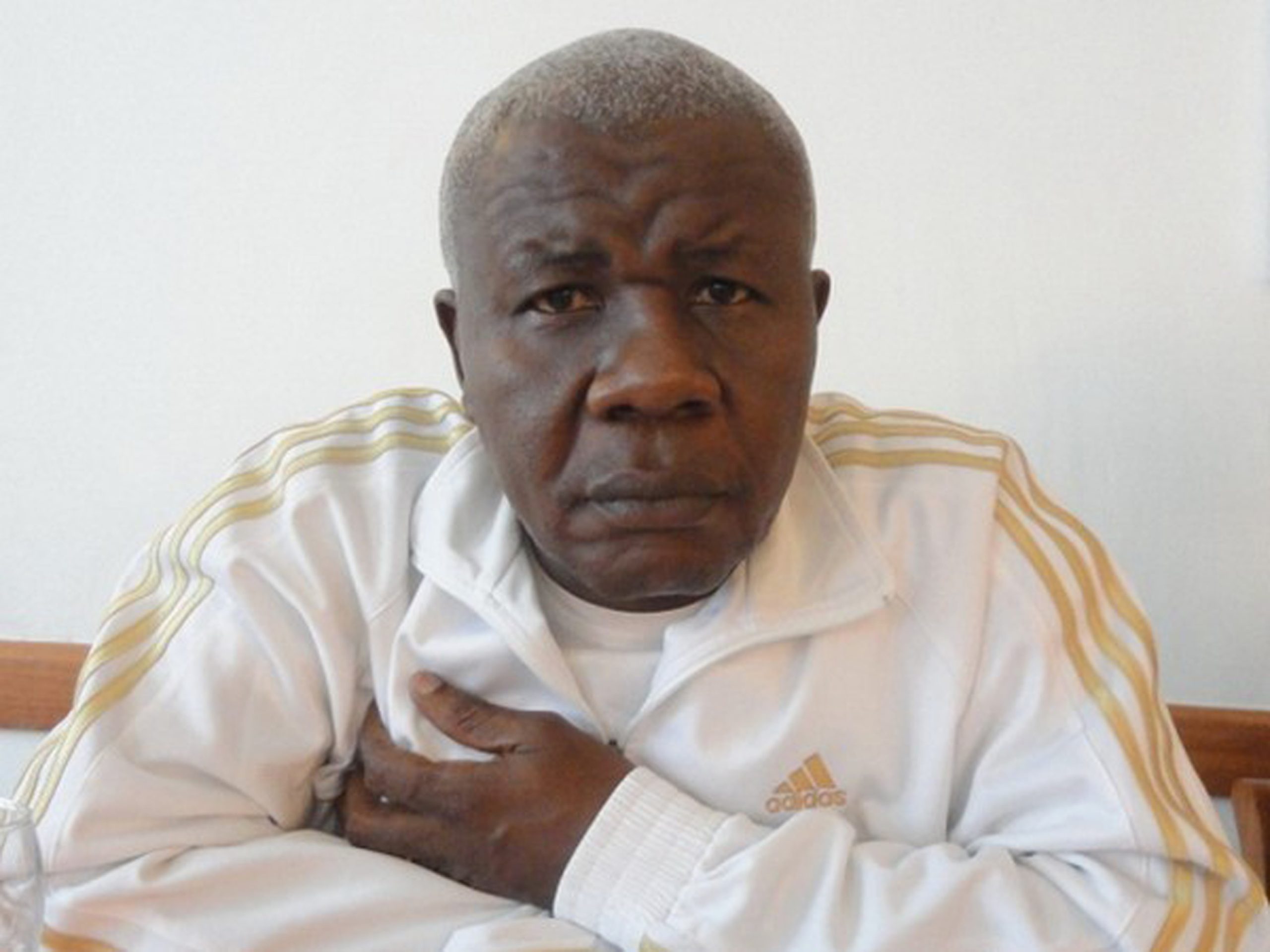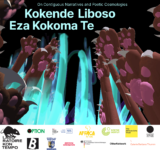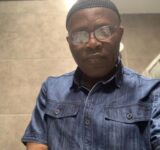Nchanji Melvin

Musicians are integral members of society because of the popularity and the power they wield, but the question as to what role they play in society has often been asked. To what end should they put artistic intelligence? Should they be nothing more than the mellifluous melodies at our parties or should they also be loud reproachful voices banging at our consciences when we’re stepping into amorality?
If you by any means think they have a collectivist perception of society, if you think musicians should not only entertain but also dare castigate the ruling elite then you won’t mind Lapiro de Mbanga being dubbed a protest artist, one of Cameroon’s finest, especially now that Cameroon’s musical landscape is peopled with sycophants, pampering the profligate egos of those in power. You will definitely not mind us starting off with an incursion into the world of music and power.
Traditionally
In traditional Africa, especially in West Africa, there was and still exist a very close and almost incestuous relationship between musicians and those in power. This is evidenced in the role of griots, who amongst other duties, catered to the megalomaniac needs of our rulers. Griots musically reminded them of their greatness as well as that of their lineage. As the most visible and credible representatives of today’s musicians in ancient African society, they did no more than entertain, if only to amplify the valour of the ruler they were serenading. This backdrop tells of a sycophantic role for musicians in African society. It points to their standard role and presupposes that hitting any contrary note is anathema to customs and traditions. It warrants that the musicians should be at the service and disposal of the rulers, aiding them to remember their grand past and present as well as prepping the public mind for their actions. In most if not all African countries, Cameroon inclusive, this assessment holds true even in the post-colonial period.
Post-Colonially
The political reality that was independence was unforgettably and musically captured by Congolese musician Joseph Kabasele aka Le Grand Kallé with the song “Independance cha, cha” which was a celebration of the DRC’s imminent independence from Belgium. While a decent representation of the independence of the time, this smash hit was surreptitiously a perpetuation of the griotic expectation heaped on musicians in traditional African society. Its popularity in political circles and with politicians was a benign indication that musicians would be expected to continue singing for and never against the political trends of the post-colonial milieu. In post-colonial Cameroon, musicians generally obeyed this rule directly like Talla André-Marie who composed a song “vingt ans de progress” to celebrate the anniversary of the coming to power of Cameroon’s first president Ahmadou Ahidjo. Veterans like Anne-Marie Nzie even owe their notoriety to songs like “Liberté” which she claims to have written only for the ruling CPDM, prohibiting attempts by the opposition in the early years of multipartism from using it as a slogan. The list of musicians who complied inflexibly with the unwritten rule of placing their music at the service of those in power can be very long. However, the list of those who severed all ties with this restrictive model of music production is short, and understandably so. In this diminutive list the name Lapiro de Mbanga stands out.
Contemporarily Lapiro de Mbango
Unlike other Cameroonian musicians Lapiro de Mbango has stood far away from the madding crowd of usual praise-singing musical lot. Upon selection and ultimately award of the 2009 Freedom to Create prize, his songs have been described as “a cultural megaphone by which the disenfranchised and politically endangered can vicariously exercise free speech.” Although today’s society places a premium on accolades , ideological and intellectual endorsements, it would be misleading to anchor any high consideration of Lapiro de Mbanga solely in these counts, or in its perennial critical tone. This is the standard go-to argument of most and it is fundamentally unfair to the artist and to the man. It is the result of but a narrow-minded and simplistic evaluation of the girth of talent. For a musical career spanning over three decades and including over ten engaging albums, one deserves more than a one line appraisal.
Pioneering
Freedom of expression is a luxury only found in democratic societies. Finding it in a one-party State during the Cold War would have been refreshing, talk less of expressing it which on its part would have been courageous. But even though just a musician, Lapiro de Mbanga had the courage to boldly voice the whispered concerns and expectations of the people. This he did even before the advent of democracy and the unshackling of basic freedoms like freedom of speech, expression and assembly. Unlike others who stopped at social commentary and criticism, he ventured into the unchartered waters of political criticism by not only documenting the injustices meted out on the people but also talked directly to the ruling elite. In a song like “Mimba We”, released in 1989 to resounding success, he calls on the ruling elite to spare a though for the people when they are about to dine and drink.
“..You want damer, you mimba we
You want soûler, you mimba we…”
Later in the song he asks those in power about the meaning of national integration and whether it is not about putting all hands on deck to help the Head of State accomplish his task. In his own words in the song
“Intégration nationale”, na wé thing no’oh ?
Na say they must rafflé other people
Or na say all we must put hand
Say we helep we don grand
For Etoudi for boulot ?”.
The fact that he chose to sing almost entirely using his peculiar brand of pidgin, and that his most popular songs are those sung using this medium is another often missed testament to his pioneering status. His use of this fringe and often rejected language means he not only voiced the concerns of the people but projected and popularised their identity, enriching the language with new words like “damer” for eat and the standard police for “nyié”. He thus contributed in giving pidgin a unique status by relieving it of some of its borrowed English words. In the process too he successfully introduced pidgin to new segments of Cameroonian society like intellectuals who hitherto had banished this language from their consideration.
Furthermore he led from the front and within. In moments of social upheaval and unrest, it is common to see and hear of people calling on people to go and fight while they are comfortably seated light years away from ground zero. In addition to musically voicing the concerns of the people, he took an active physical part, much to the detriment of his hard-earned reputation in many of the historical highlights of Cameroon’s recent history. He was an active force during the pro-democracy of the 90’s as he negotiated with the then Delegate for National Security Forchive for safe passage to Bamenda of University of Yaounde students accused of inciting unrest. This particular act led to the birth and persistence of rumours of about conspiracies with the very government he criticised. In 2007, he went in for the 2007 municipal elections in Mbanga for the opposition party, losing ultimately. Later he released his highly-critical song “Constitution Constipée”, a long musical diatribe against the planned constitutional amendment to enable Cameroon’s president to be able to stand indefinitely for election as president of the republic. This song was banned from the airways. In the post 2008 hunger strike scenario, he was accused, charged and sentenced for allegedly inciting looting in Mbanga.
So?
It is obvious that unlike his predecessors and contemporaries, he did not indulge the status. He used his music to not just protest but fight the status quo laid down by those in power. With his limited reach, he took a stand and laid the precedent that musicians as integral members of society must not just go with the flow but must endeavour to swim against it if necessary. For him, music was for protest, clamouring loud and long for better living conditions and governance.
Now that he’s Gone
Post-mortem, there are questions floating in the air both about his legacy as an artist and about his artivism— his belief that music can and should be used to demand for socio-economic and political development. Now that he has taken his final bow, will his music now loose its stentorian tone and become an occasional shout, if not, unfortunately, a distant echo for some? But we wish to believe artists never die, and that as such he planted the seeds of artivism in other artists; that these will now sprout and haunt the political conscience with odes about their sustained “shortcomings”. Ndingaman’s legacy will live on when others like him will walk to the microphone and keep serenading Cameroonian society with loud cries from the people about how much they hurt with every step in daily life. Don’t get me wrong. There is a current crop of up and coming musicians like Valsero with the will and potential to step into Ndingaman’s shoes. But to comfortably and durably walk miles in these shoes they would have to be consistent in churning out hits, be original and hope for seismic socio-economic and political circumstances to set the stage for their ascension to durable stardom.
Finally
Theme-wise musicians on the Cameroonian music stage can be classified as follows: the romantics, those always singing about the heart; the dream merchants, generally exploring dreams about hitting the jackpot and living the good life; the sex addicts, ever feeding the sexual penchants of society; and there are the artivist, those whose music keeps reminding society and its leaders of its growing shortcomings. This last group is the least populated not only because in showbiz, conscientization doesn’t sale out CDs and concerts but also because it takes much intellectual exertion to formulate socio-political issues in terms that will resonate with all and sundry. This is Lapiro de Mbanga’s legacy and this is what is up for the taking for any Cameroonian artist who can rise to the occasion.







Je ne connais pas très bien l’oeuvre de l’artiste, et cet article ne me donne qu’une seule envie; en savoir davantage tant sur le chanteur que sur l’homme.
a well pepped piece that does justice not just to Ndingaman’s memory as an artist but also to his struggles and effort in the fight for a better political atmosphere in Cameroon. Kudos